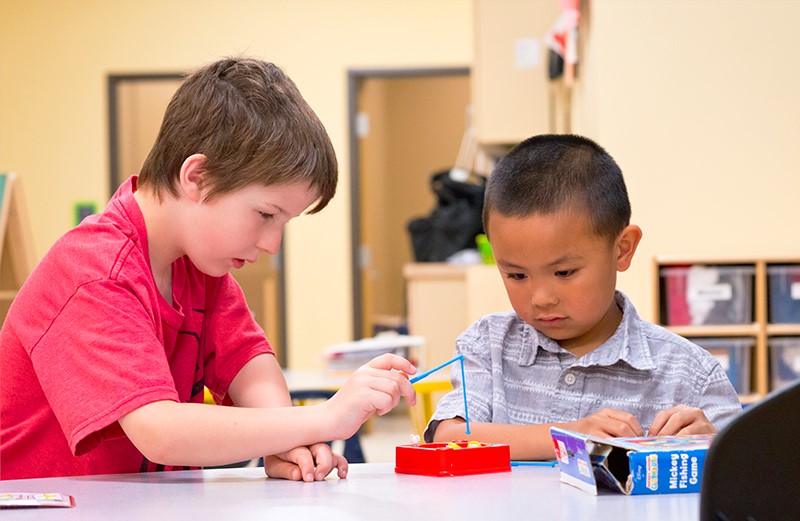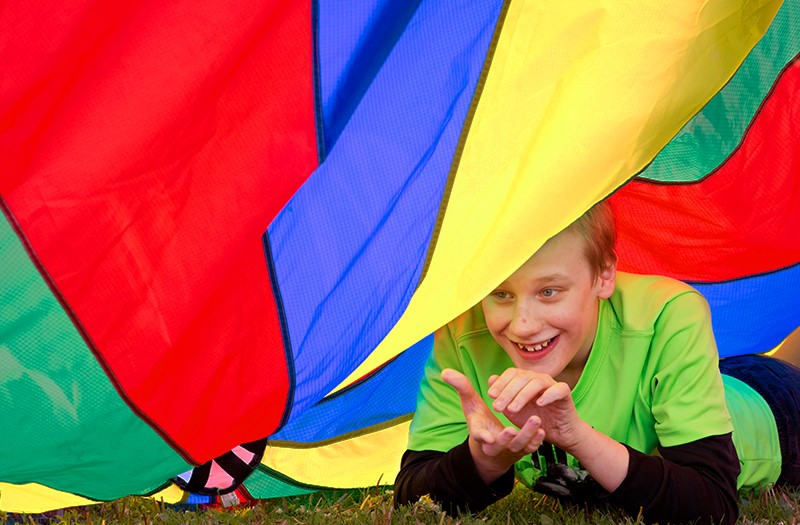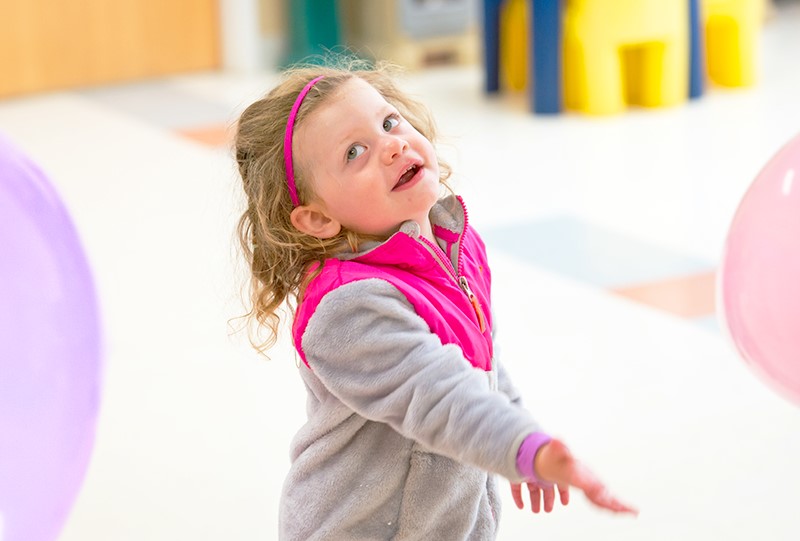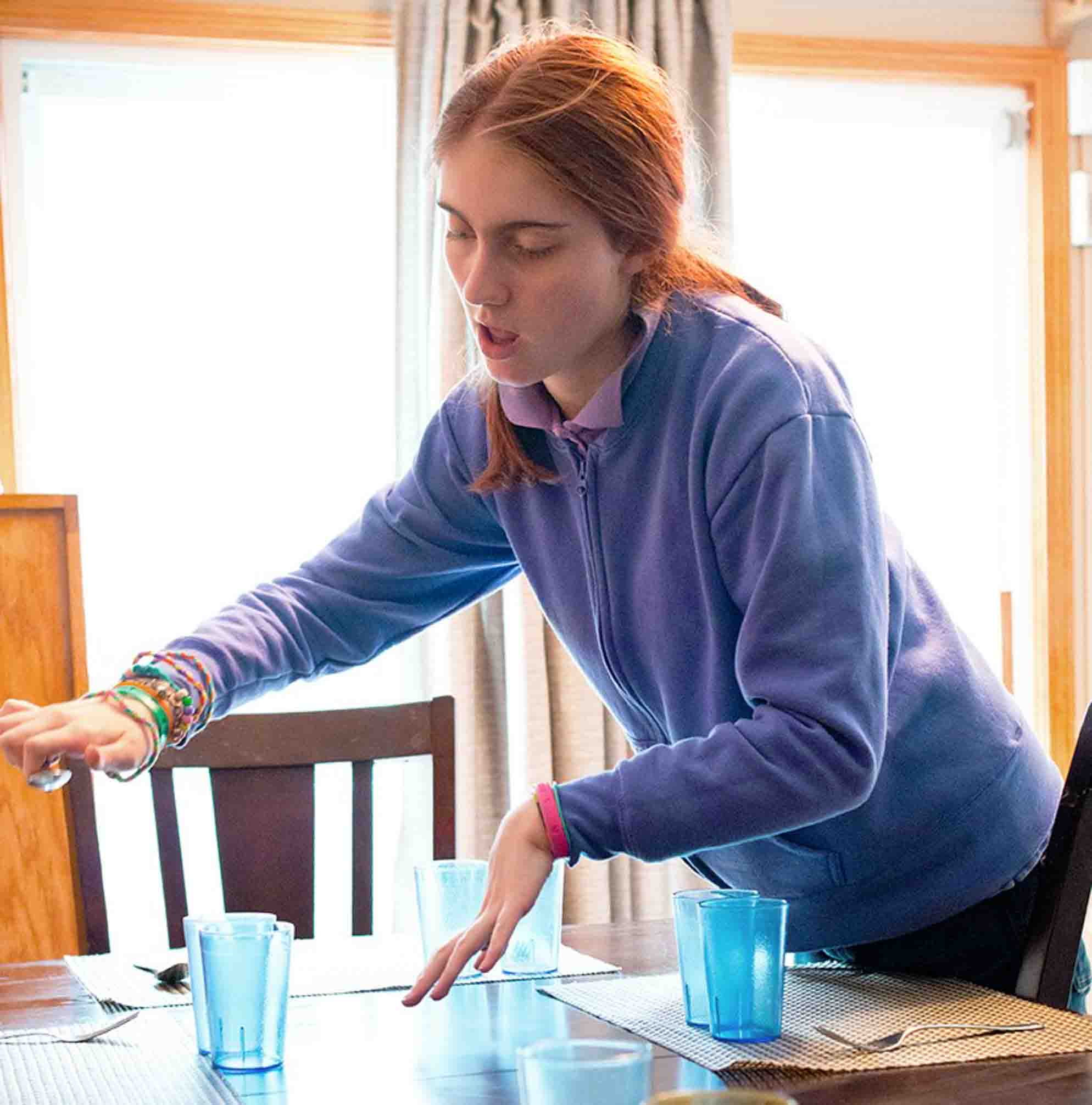As a Behavior Tech, Leslie taps into a lifelong passion for learning.
February 23, 2022

Here's the thing about teachers: The good ones, the best ones, are never 'just' teaching. They're always learning.
For Leslie Kahler, who recently celebrated her five-year anniversary as a Balance Autism Behavior Technician (BT), the line between teaching and learning has always been blurry.
First, she was a student. Then a teacher. Then a student again.
Now, she's back to teaching.
Of course, 'teacher' and 'student' are just titles. And no matter her title, Leslie has always been one thing: a learner. Curious, creative, eager for a challenge.
Today, as a BT, she reminds us that the best teachers are students at heart.
Classrooms & Graduations
Leslie had been teaching for 16 years when she had an epiphany: She wanted to be a student again.
As a preschool teacher, she enjoyed the sheer variety of her job. Sure, you were in the same classroom most days, working with the same children, but every day felt fresh - new challenges to tackle, new lessons to learn. Each class was as unique as the children themselves.
She loved working with kids. Like many teachers and parents, Leslie was drawn to the unparalleled creativity and curiosity of children. The way their eyes light up when they get it. The unexpected, off-the-wall questions. How they can look at something you take for granted and see it in a whole new way. As someone with a passion for discovery, her students inspired her as much as she inspired them.
And then, after 16 years, Leslie left teaching behind. As much as she loved her career, she was ready for a new adventure - even if she wasn’t quite sure what that was.
In 2016, after graduating with an English degree from Western Illinois University, Leslie came across a job posting from Balance Autism. It wasn't what she had expected; the role, Behavior Technician, had little to do with her new English degree.
And yet, here was an opportunity to work with children once again, but in a different context. New challenges, new lessons. A new riff on a familiar tune.
It wasn't until she began working in the clinic that Leslie realized this may have been what she was looking for all along.

Lesson Plans
After teaching dozens - maybe hundreds - of students over 16 years, you might think Leslie already knew everything there was to know about kids.
In reality, she was just getting started.
In her new role as Behavior Technician, Leslie worked directly with children in a clinical setting - similar to the classrooms in which she worked for years, but more focused on individuals. Using Applied Behavior Analysis (ABA) - a scientific approach that aims to replace negative behaviors with appropriate ones - she helped children with autism develop critical skills, from communicating their needs to working in groups.
It could be tough. Even as a longtime teacher who had dealt with countless tantrums, there were times when the clinic felt like unfamiliar territory.
"It was a little overwhelming, a little different," she said. "Sometimes, the kids hit or bite or scratch. You have to be ready for anything."
Fortunately, Leslie wasn't alone. A quick learner, she kept an eye on the more-experienced Behavior Technicians around her: How were they connecting with kids? What were they doing differently? Often, at the end of the day, she would sit down with a Board-Certified Behavior Analyst (BCBA) - a graduate-level professional who designs the programs implemented by BT's like Leslie - and together they would run through a video recording of her session, pointing out situations where she might try a different strategy the next time.
"You get to know each of these kids, and you learn to plan ahead," she said. "You learn to constantly think, 'Okay, if I was in their situation, what would help me feel more comfortable?'"

“It’s Dynamite!”
Whether you're the student or the teacher, learning is hard work. Sometimes, it can be fun; other times, frustrating. But as Leslie learned to combine lessons from her classroom days with new techniques in the clinic, she began to feel more comfortable. And as she found new ways to connect with children, everyone began to see the results.
There was one child with whom she had been working for months, helping develop their language skills. Progress was slow, at first. For years, they had relied on a PECS Book (Picture Exchange Communication System), using images and gestures - and often tantrums - to communicate their wants and needs.
But then, everything changed. As Leslie built her connection with the child, they began to vocalize. Pointing at pictures became words; words became sentences; sentences became a dialogue. For the first time, they had a voice.
For Leslie - who had taught students countless lessons over the years - helping a child learn a skill as fundamental as speech was a breakthrough.
"It’s dynamite!" she said. "Obviously, it wasn't just you - it's the whole team. But to know you were a part of it, to know you helped them join the world... it's life-changing."

Honor Roll
In 2021, the Iowa Association of Community Providers (IACP) opened submissions for the Direct Support Professionals (DSP) Award, which honors outstanding workers during DSP week.
At Balance Autism's Quad Cities clinic, the leadership team came together to choose their nominee. They needed someone who exemplified the organization's core values: passion, curiosity, engagement, optimism, and a commitment to Balance Autism's data-driven approach.
It was a tough decision - the clinic was full of team members who exemplified these values. But one name kept coming up.
"It's hard to pick a specific moment that captures who she is, because any day you're with Leslie stands out," said Elizabeth Schaaf, Program Manager at Balance Autism's Quad Cities clinic. "Whether it's with the kids or her fellow coworkers, she brings this natural, positive energy that puts people at ease, makes people smile. She knows how to keep it fun."
For Leslie - who, to no one's surprise, was honored with the DSP Award - there's more to "fun" than meets the eye.
Teaching, Leslie says, is all about connection. If you want to help a child learn a new skill, you can't simply jump in and "teach." First, you have to do the hard work of building an emotional rapport - finding common ground, listening to the child, being a student of their world - then, and only then, can you use that connection as a bridge to give and receive ideas.
Building these bridges is at the core of Leslie's approach. And, she says, it can be a lot of fun.
"You have to keep in mind, you're asking these kids to do something new, or to do something different from how they've done it in the past," she said. "Trying something new is uncomfortable! It can be scary! But if you make it fun, if you get creative, focus on the things that excite them - then they start having fun. And then you're having fun.
"And before you know it, everybody’s learning."
Thanks for reading Leslie's story! As the rate of autism continues to increase nationwide, the demand for Behavior Technicians is greater than ever. Balance Autism is currently hiring for a variety of positions, including BT's. If you are interested in growing your career with us, learn more about our available positions (including benefits, qualifications and more) at our Careers Page.